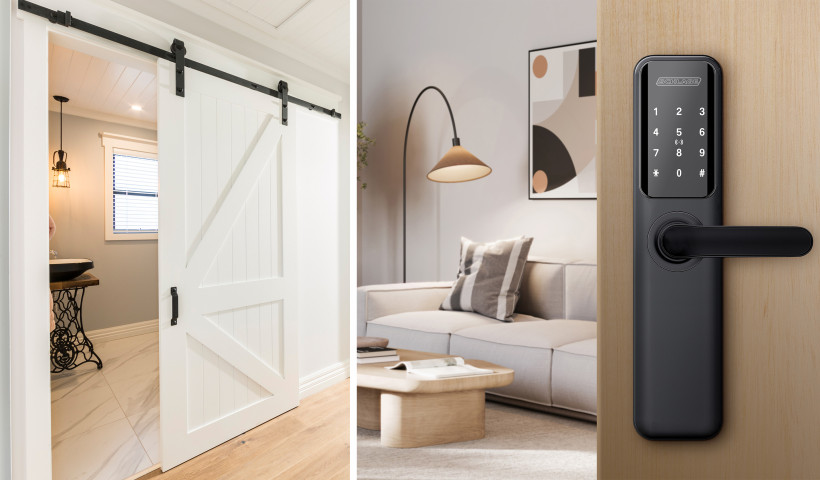
Taking leadership in the security industry seriously, Allegion continually strives for excellence, to develop cutting-edge products to keep people safe and secure in their homes and places of work.
Manufacturing many of their key products locally is a competitive edge for Allegion New Zealand, an integral part of their innovation and business that allows them to increase efficiency and timely product delivery, while staying close to their customers.
Where it starts
To consistently design and develop safety and security solutions, Allegion's local product development and product management teams work closely together to proactively elicit customer feedback, conduct market research, and seek inspiration from current trends.
Meeting customers’ hardware security needs is imperative. Product Development Manager Jeremy Gear notes that Henry Ford allegedly once said, “If you asked people what they wanted, they would have said faster horses.”
He then adds that although customers can easily describe the problem they have, they don’t necessarily know what the best solution would be. Thus, identifying the best answer to the problem is the critical challenge and where design thinking helps bridge the gap between Allegion and their customer’s needs.
“Allegion’s QuickFix technology is a good example of this,” he cites, where customers needed a fast and easy way to install door hardware. Allegion New Zealand’s product development team came up with the technology that revolutionises the fixing mechanism for faster door hardware installation and reduced labour costs for end users.
Prioritising ideas to meet the demands across the business is a challenge. Therefore, Allegion's innovation process must deliver three things: superior solutions, lower risks and costs of change, as well as people buy-in.
Gear says, “Part of our ideation process is presenting a business case to internal stakeholders, where we further define opportunities to physically make the product we have in mind and then make a commitment to do it.”
Next steps involve creating a prototype and testing. Once an innovation has been given the seal of approval, its production is scheduled.
Putting products to the test
Testing starts right at the design validation stage before prototypes are made, using computer-aided tools that simulate physical loads placed on the product to identify any weak points in the designs. This is then fed back into the product design to improve the end solution and make prototypes.
“We test our products so that we and our customers have certainty that they are 100% suitable for the physical demands they will be placed under when in use. We aim to provide peace of mind for our customers, and to make it easy for them to stand behind our product in their projects,” says Gear.
Once the design has been validated and has passed all test requirements with handmade prototypes, commitment is made to hard tooling and volume production.
Allegion continue to monitor and test various aspects of the product throughout the manufacturing process. These may include tests to check the quality of springs, strength and durability, as well as surface finish and aesthetic checks, to ensure Allegion maintain a high standard of quality.
Quality Technician Gary Kelly says, “Wherever we can, we look to test above and beyond the requirements defined in market standards. This gives us and our customers extra peace of mind. Take for example our trusted Legge 990 Series mortice lock — we know that this lock will regularly test to in excess of 1 million door opening and closing cycles, double the requirement of the highest certification level in the Australian and New Zealand standards.”
How it’s done
Manufacturing security hardware involves several steps. Allegion New Zealand Plant Manager Donal Cronin cites the production of the Legge narrow stile plate furniture, wherein raw drawn bar is loaded into a CNC mill to be precision machined. The plate is then hand polished or sateened to remove imperfections before electroplating to increase corrosion resistance and apply the required finish. Throughout this process, work is done to ensure that environmental respect is met with the use of Allegion's high standards of electroplating technology.
After passing quality control (QC), the plates are moved to the final assembly station, where again the finished goods are QC assessed before packaging for delivery or added to stock.
“For all our locally produced products, we’ve made the conscious shift to use greener packaging where possible to help reduce our carbon footprint, particularly minimising the use of non-recyclable hard clamshell plastics,” says Cronin.
The Brio Wardrobe and Open Bar rails are trimmed to size on-site from 6-metre stainless steel bars, which are then polished, finished in matt black or satin stainless steel, and lastly assembled in a pack-set.
Manufacturing Engineer Johann Hogan stresses the need for precision, that the accuracy of fixturing in the machine is of utmost importance. All machines follow scheduled maintenance and servicing to maximise performance and efficiencies.
“In manufacturing, you can always do better — better tools, better materials, better machines, better manufacturing processes.” He adds that Allegion regularly invests in new machinery and technology, in addition to exploring methods to improve processes.
Health and safety of staff is crucial, so the operations team continuously looks for ways to increase safety in running the machines and in every step of the assembly and distribution process.
Who puts it all together
When it comes to manufacturing, employees require a good attitude, the willingness to learn, and a passion for excellence.
As far as skills and talents are concerned, Allegion New Zealand has been very fortunate. “We have a stable base of employees who know their job very well, a strong employer brand, and an effective internal referral programme to attract new talent as the business expands,” says Human Resources Manager, Odette Jury.
Flexing of Allegion's manufacturing staff has proven to be an effective system. Rotating people to work in the different parts of the factory gives everyone the opportunity to learn other skills and ensure that all manufacturing areas are covered during periods of leave or uneven production demand. She adds that the average length of service of employees across manufacturing and distribution teams in New Zealand exceeds ten years. Staff retention and loyalty are high because Allegion looks after its employees.
“We like to make a positive impact on the work and personal lives of our people,” states Jury. This is done by providing toolbox training sessions on safe operating procedures, having a health and wellness programme, and giving regular recognition awards and health and safety spot prizes.
These, as well as a high focus on safety, are inherent to Allegion's culture and core values.
When it finishes
Door hardware is considered the jewellery of a home that can create an impact at the entrance and set the tone of a room.
Special finishing of door hardware improves corrosion resistance, strength, durability, and extends decorative options to meet an
architectural vision to impart cohesiveness to a space.
To further set them apart in the market, Allegion New Zealand offers an extensive selection of special finishes produced in-house to
complement architectural designs with the state-of-the-art electroplating plant. This helps ensure a faster turnaround, quality control, environmental respect, and the ability to accommodate special requests.
Finishing Supervisor Jared Balle states that having the most advanced processing equipment is safer for staff, better for the environment, and is cost-efficient. “Automating the right aspects of our operations allows minimum operator exposure to chemicals, while increasing productivity. It is a precise, consistent, and repeatable process.”
Environmentally, Balle explains, “Part of our stewardship is ensuring our wastewater treatment is non-hazardous. That is, it is a clean and clear stream, with the right pH range and temperature, as well as low metals concentrations and solid content.”
Aside from electroplating, Allegion’s special finishing includes powder coating and polishing. With Allegion, you can be assured your door hardware specification combines innovation with style from start to finish.
“Excellence is a journey and not a destination. We define it as not being perfect, but as having the mindset for continuous
improvement,” says Cronin.











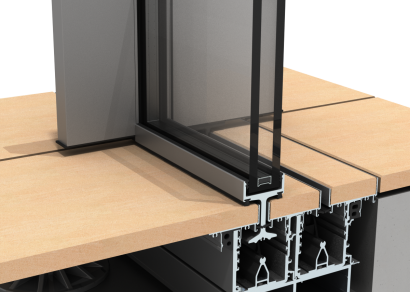

 Product News
Product News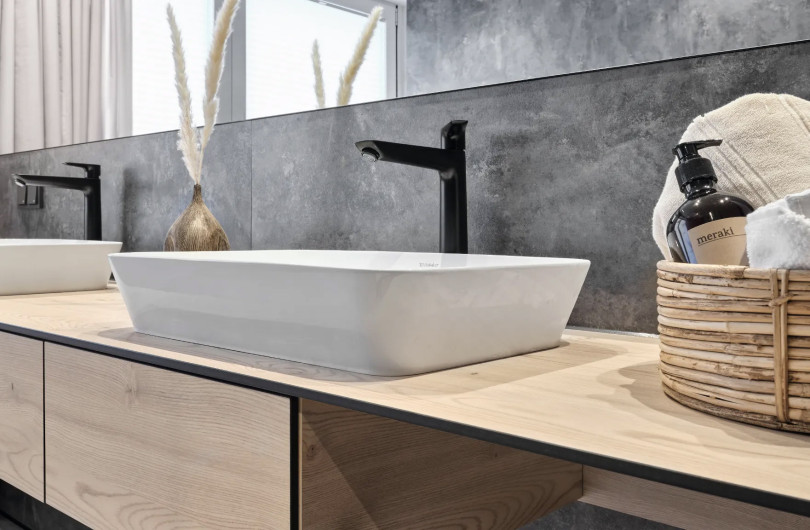
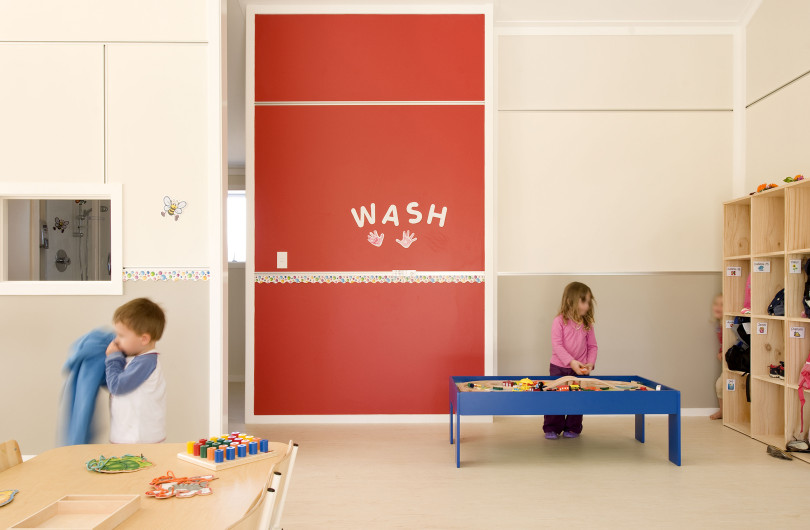







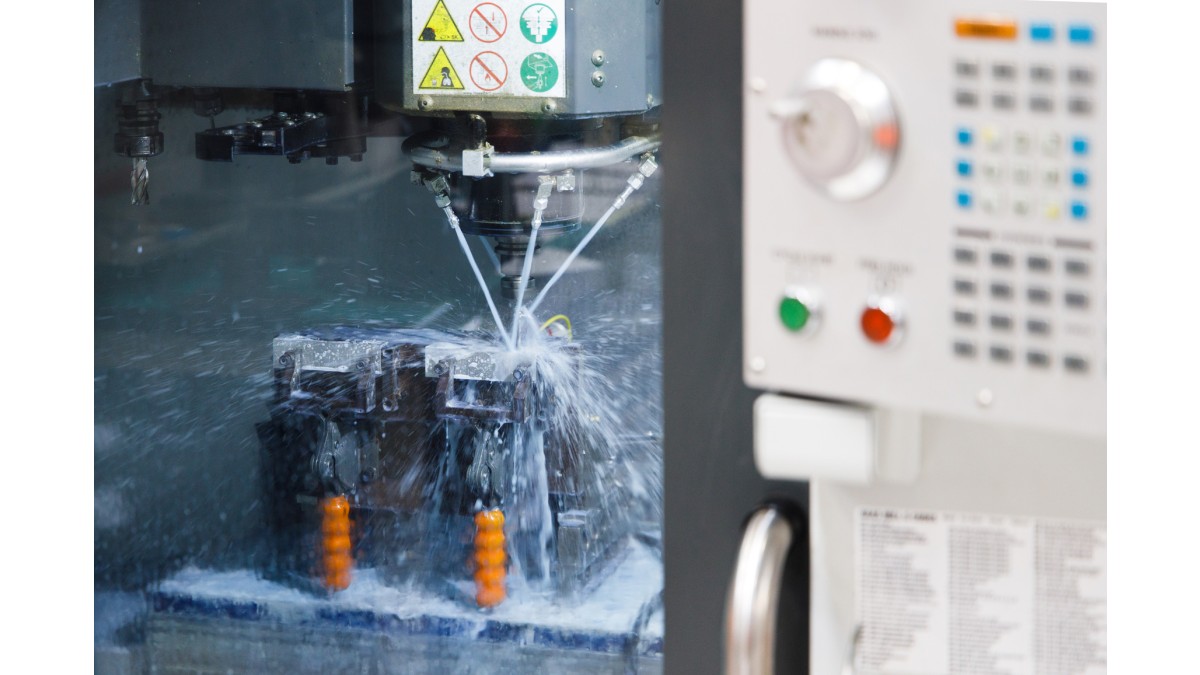
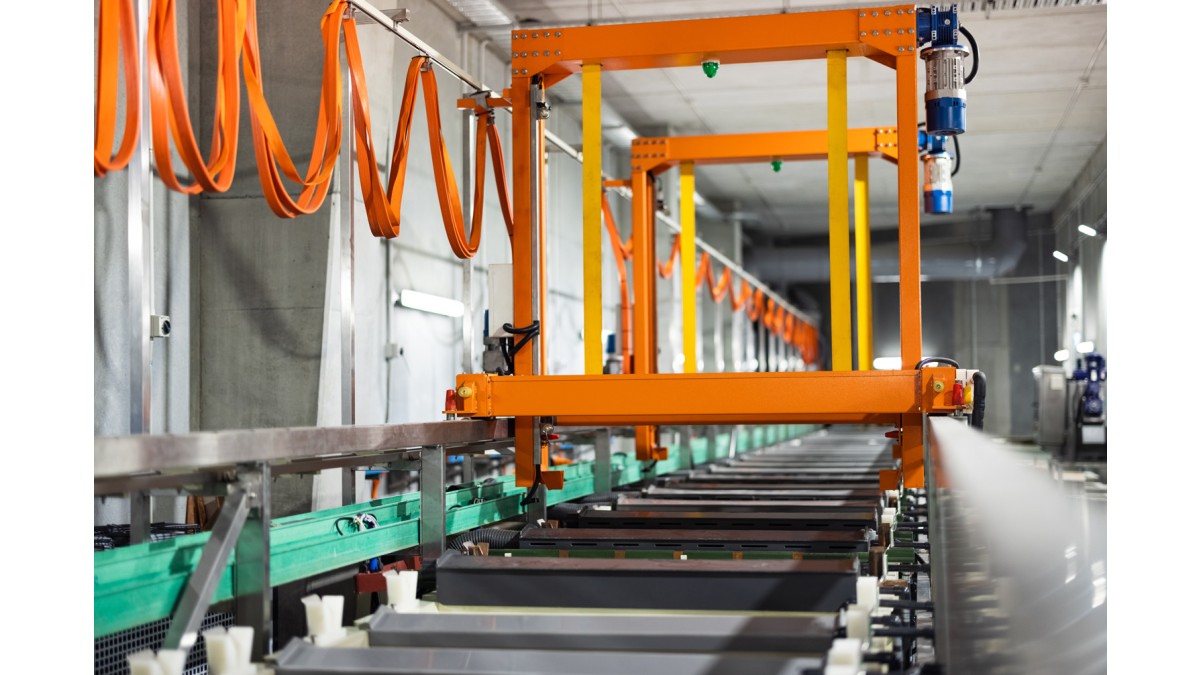
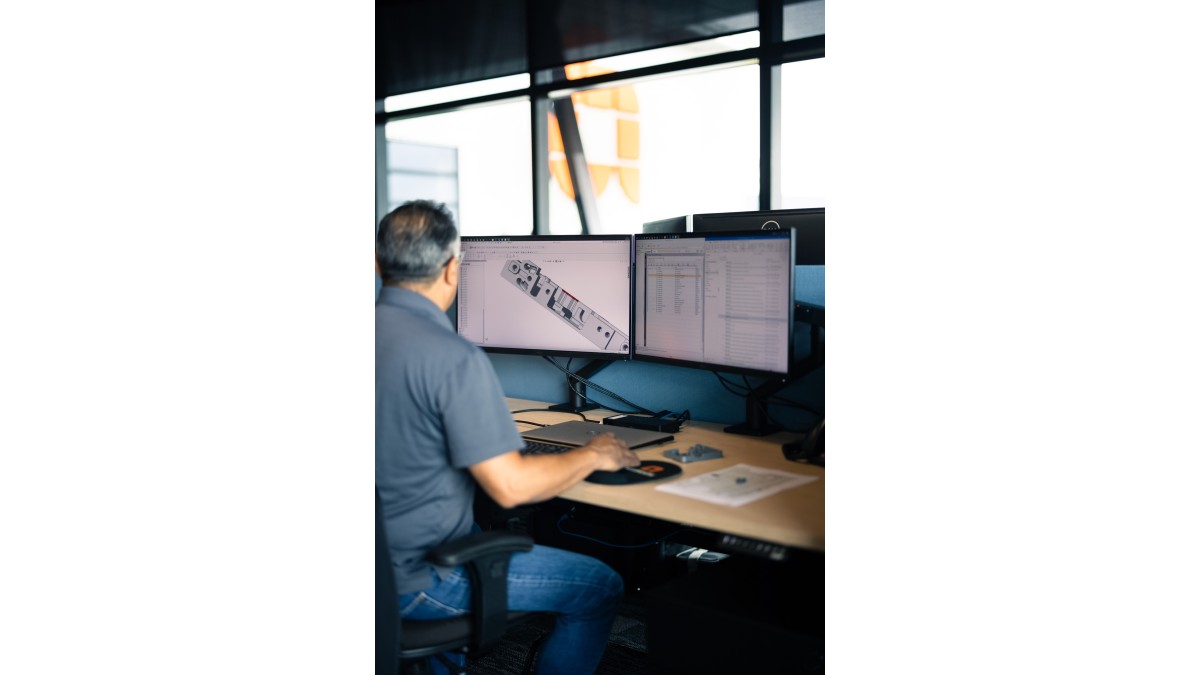
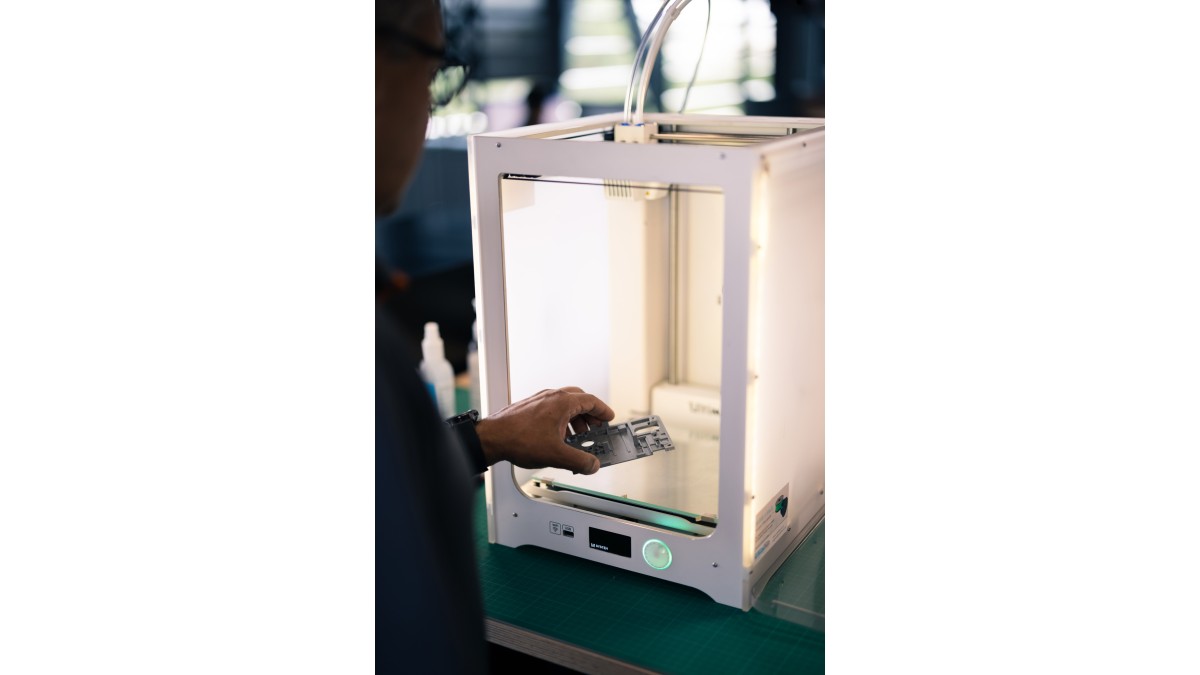
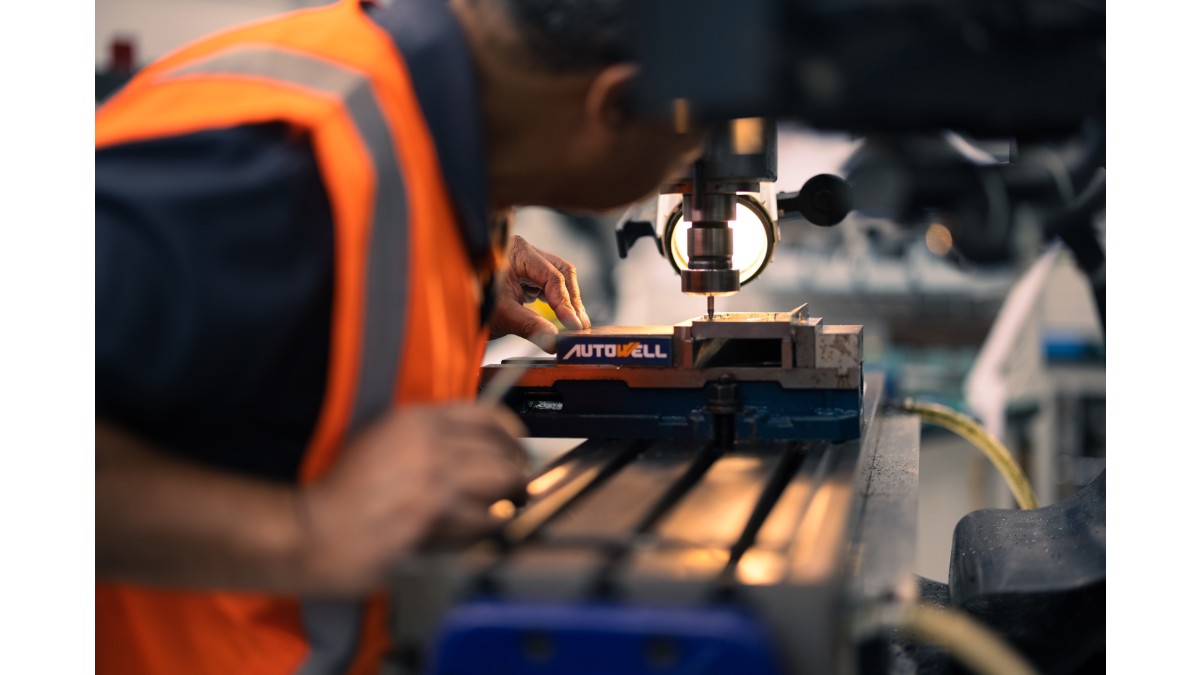
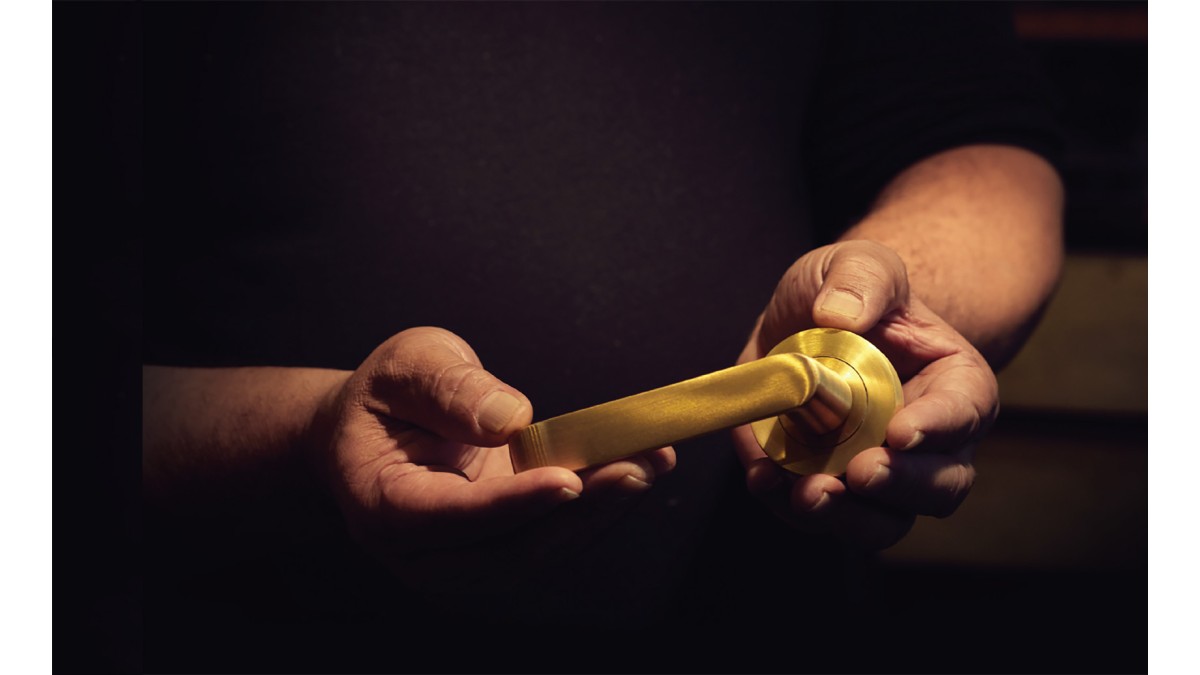


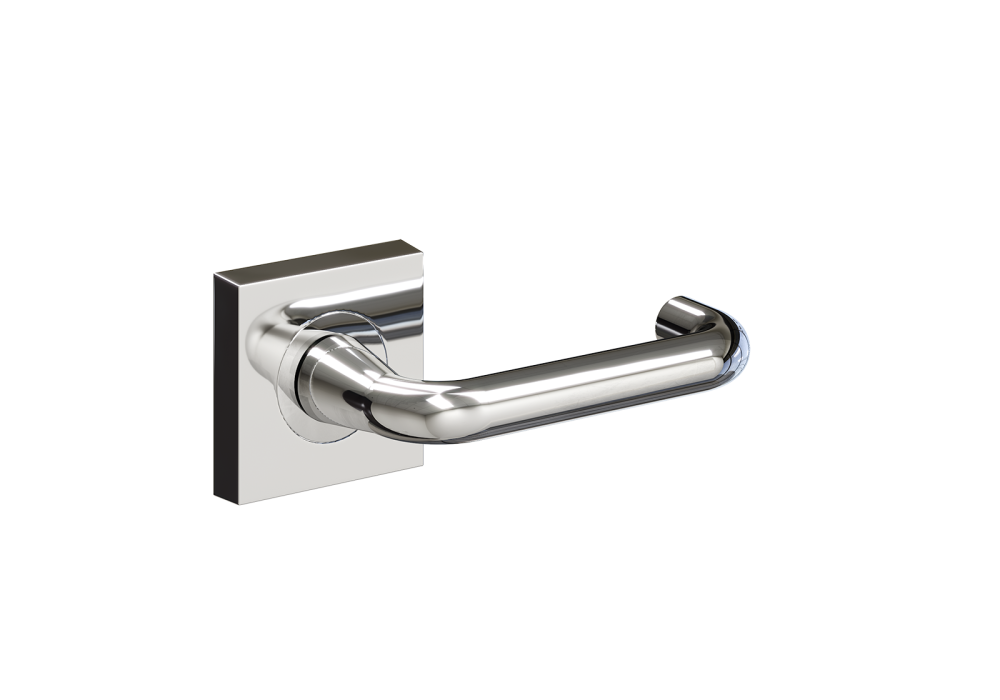

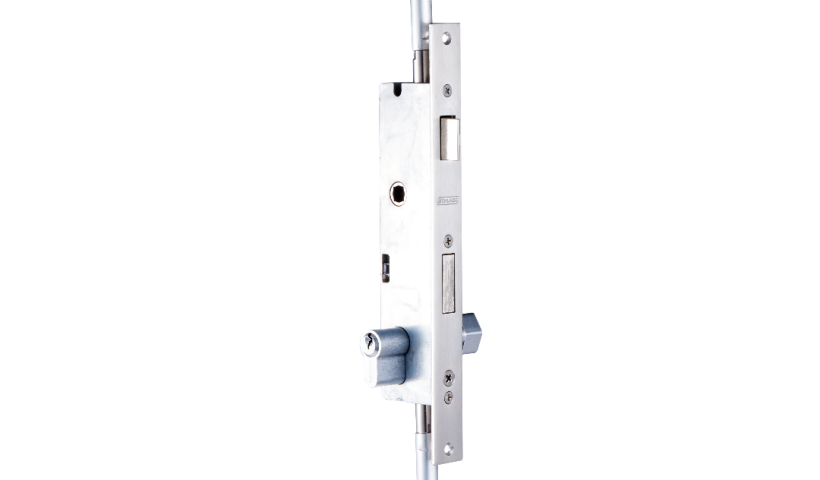
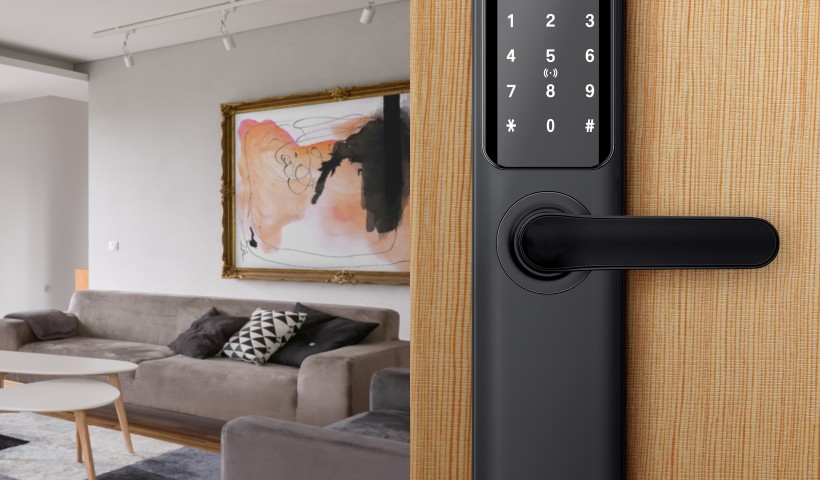
 Popular Products from Allegion
Popular Products from Allegion


 Most Popular
Most Popular


 Popular Blog Posts
Popular Blog Posts
